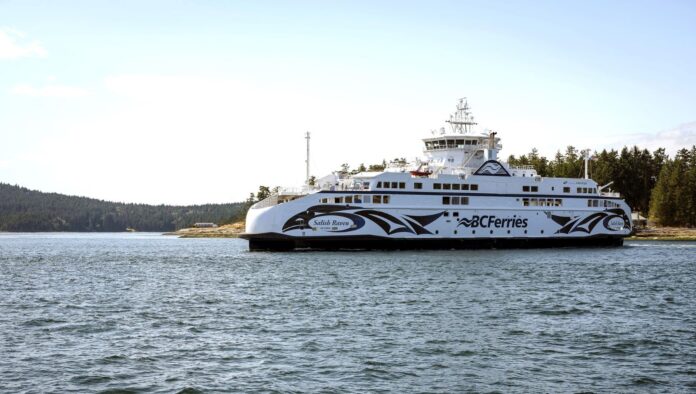The union representing shipyard workers in British Columbia says it is “deeply disappointed” with B.C. Ferries’ decision to have four new major vessels built by a Chinese shipyard, and is calling on the provincial and federal governments to intervene.
“It is disheartening to witness such a significant project being awarded overseas, especially without adequate consultation with Canadian industry stakeholders,” the Shipyard General Workers’ Federation said in a statement Thursday.
B.C. Ferries announced Tuesday it had selected China Merchants Industry Weihai Shipyard to build four diesel-battery hybrid vessels to replace some of its oldest ferries. The company said the decision followed a “rigorous global procurement process” that was open to Canadian shipyards.
“[CMI Weihai] was the clear choice based on the overall strength of its bid,” B.C. Ferries CEO Nicolas Jimenez said in a statement.
The company noted the shipyard has previously built vessels for Marine Atlantic, a federal Crown corporation, as well as other large international operators.
The Shipyard General Workers’ Federation said the B.C.-based shipbuilder Seaspan did not bid on the contract, but argued Canadian capacity still exists.
“Many smaller shipyards in Canada have expressed their willingness and capability to collaborate as a consortium to keep this work within our borders,” the union said.
B.C. Public Safety Minister Mike Farnworth, who also oversees transit, said after the announcement that he is “disappointed” more Canadian shipyards did not take part in the process.
The Opposition Conservatives are also urging the NDP government to block the deal. Leader John Rustad criticized the decision to award the contract to a Chinese state-owned company. CMI Weihai is owned by the Hong Kong-based China Merchants Group, which describes itself as a state-owned enterprise.
B.C. Ferries said the contract is part of a push to modernize the fleet, as several vessels are near or beyond their 45-year life expectancy. The company said the new ships will offer more space for passengers and vehicles, improved accessibility, and better environmental performance.
The first of the four new vessels is expected to enter service in 2029.
Something going on in the Prince George area you think people should know about?
Send us a news tip by emailing [email protected].







